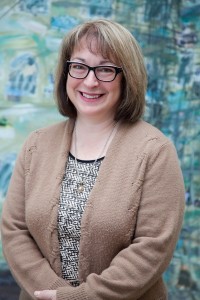Dr. Jenny Melamed (photo from Jenny Melamed)
“I’ve been in addiction medicine for at least 15 to 20 years now. I spend my time with people in addiction and recovery; that is all the work that I do. I believe in recovery and I believe in remission for the disease of addiction,” Dr. Jenny Melamed told the Independent.
Melamed, who now lives in Vancouver, was born and raised in Johannesburg, South Africa. She moved to Canada with her husband in 1987 – first to rural Saskatchewan, then to Vancouver. Her work with addiction began with a friend’s suggestion to try some work at a methadone clinic. She immediately was drawn to help people in this way and became certified in addiction medicine in the United States, then in Canada and internationally.
“I’ve got lots of initials behind my name,” said Melamed. “I’ve spent most of my time in addiction talking, doing person-to-person counseling. I don’t wear a stethoscope.”
According to Melamed, physicians were among the first abusers of prescription drugs. “It was thought that treating pain with opioids would not be addictive,” she said.
“Opioids are narcotics that act on opioid receptors to produce morphine-like effects, so we were prescribing it and, now, there are so many opioids out there. And we’re having these pill parties, where kids are taking pills from their parents’ cupboards – going to these parties where they’re putting them into these big bowls and they don’t even know what they are taking out. We’re looking at 13- or 14-year-olds that are trying these drugs. They’re finding it young.
“There’s not that much OxyContin available anymore,” she added, “as people are now scared of it.”
Melamed said there is no way to know for sure if a person will become addicted or not. Kids often take more than one possible addictive drug at these kinds of parties, she said, so they will likely not even know which one(s) affected them and what the specific effects were.
“For some people who take their first drink or take their first opioid, they will say that ‘the minute I used X, I felt calm for the first time,’” she said. “For some, it starts immediately. For others, it starts as weekend use at parties. Then, they start to use a little more during the week, and then they start realizing that, when they try to stop, they can’t. They’re actually dependent on this drug and are going through withdrawal. They can’t move away from it.”
Melamed said, “Addiction is a disease of escape. They’re using it to help them cope. I said to a young girl yesterday, ‘Why do you use?’ She said, ‘Sometimes, I just don’t want to feel.’ And that’s what it is. They learn from an early age, and the addiction part of the brain takes over and says, ‘I will help you through this.’
“We all live in a society where there’s a lot of stress and many of us, especially young people that have not developed coping mechanisms, turn to different modes of escape, as they are the easiest thing to do.
“The important thing to remember is that, when you come down from whatever high you used, you still have the stress, if not even worse, as now you’ve got to pay for your drugs. You may have blacked out or overdosed … but, in the spur of the moment, addiction is such an instant gratification that you don’t even think of it. You just think about self-medicating.”
Recovering addicts learn that there is no such thing as a cure from addiction. Addiction may go into remission in the same way that type 2 diabetes can go into remission, said Melamed. If one changes their diet and loses weight, etc., they may not have to use insulin anymore, but, if they gain weight back, change their diet or lifestyle, the diabetes will flare up again.
“So, you get the person who is out with buddies and somebody says, ‘You want to try this heroin?’ not knowing there’s fentanyl in there,” she said. “And they die, because the brain tells them that they can try it just once. And they actually believe that they can go back to being a social user, or a social drinker.
“They don’t understand that this is a chronic disease that is with them for the rest of their life. And, you know, when you say to a 15-year-old, ‘you’re not going to be able to use or drink for the rest of your life,’ it’s a very difficult concept and very scary … and that’s why the AA [Alcoholics Anonymous] concept of one day at a time is really important.”
While only about eight to 11% of people who use a substance become addicted to it, no one knows which substance will entrap them. But, one thing is for certain – it can affect any of us and the problem affects us all.
“I think the first thing we have to understand is that it doesn’t matter what religion we are, what our economic status is – everybody has a risk of addiction,” said Melamed. “We have some very wealthy families in the city who have lost kids to addiction. We have to move it out of the stigma.
“You have the concept of, ‘Oh, he’s a functional alcoholic, just drinks at lunchtime.’ And, we accept that. But, we shouldn’t accept that in any form. And, we also shouldn’t stigmatize it in any form. We need to talk to our children about it and be on top of it.
“In some ways, as a Jewish population, we feel like we’re a little different and protected,” she continued. “We’re not. The conversation has to happen at home. When I gave a talk here, at the Schara Tzedek, about addiction, the room was empty. We believe our kids would never do it.”
There are things you can do at home, in addition to talking with your kids about addiction. Any prescription drugs that are not being used should be returned to a pharmacy for proper disposal, and any medications that are being used on a regular basis should be locked up.
“You also should take a look at why you are using these medications,” she said. “Even as adults, our drug use is inappropriate.”
Melamed said one of the best ways to keep an eye on your kids is by making your home a welcoming space where they and their friends are happy to hang out. That way, they are comfortable being around you and you see what is going on.
“You need to know where your children are, who their friends are and what they are doing,” she said. “And, you cannot assume that, just because they are from the same socioeconomic status, that everybody’s good. It’s really important to know parents, their friends and to know what’s going on.”
Melamed is open to hearing from educators, schools, community groups and others who would like her to come and speak on addiction and its treatment.
Rebeca Kuropatwa is a Winnipeg freelance writer.





